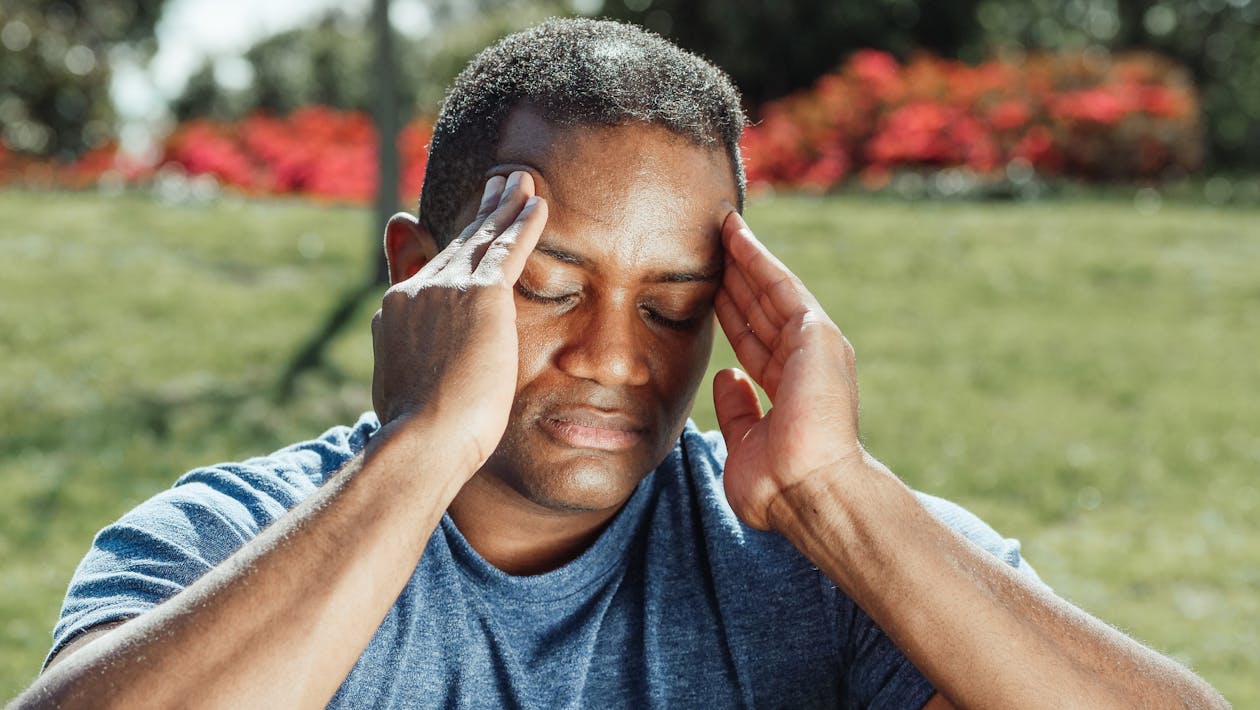Many factors can cause a brain injury, which could be by medical issues such as a stroke or a tumor. Such injuries are called Acquired brain injuries (ABIs), which are very rare.
On the other hand, the most common cause of brain injuries is a forceful hit or jolt to the head, and such common injuries are called Traumatic brain injuries (TBIs).
Sometimes it can be complicated for an ordinary person to understand TBI and TBI symptoms in detail. So, let’s get into depth to understand what’s all incorporated in TBI.

What is TBI?
TBIs can damage nerve cells in the brain and cause bleeding or swelling.
Although most TBIs are recoverable, they can significantly impact your everyday life and create physical, mental, or emotional stress. These injuries can be by a variety of factors, including:
-
A direct hit to the head
These are called closed head injuries. Impact sports and car accidents are two common causes of such injuries.
Although not every head injury will result in a TBI, you should consult neurologists Ft Worth Tx or neurologists of any other region if you have any concerns.
-
Penetration
A bullet, for example, can pierce the skull and strike the brain. Such injuries are called open head injuries.
-
Shaking of the head in a violent manner
Nerve tissue tears as a result of vigorous head shaking. The shaken baby syndrome describes this behavior in infants.
-
Whiplash
The rapid back-and-forth can injure the brain.
A traumatic brain injury might cause you to lose consciousness, experience amnesia for a while, or become disoriented for weeks.
A traumatic brain injury caused by a crushing or penetrating blow can be life-threatening and life-altering. So, there are possibilities for surgery and rehabilitation.
Symptoms of TBI
Now that you understand what is TBI, let’s understand the symptoms of TBI.
TBI can have a broad range of physical and psychological consequences.
-
Mild Traumatic Brain Injury
Mild TBI medical patients can experience the following signs and symptoms
Physical symptoms
- Headache
- Nausea or vomiting
- Fatigue or drowsiness
- Dizziness or loss of balance
Cognitive, behavioral, or mental symptomsn
- Memory or concentration problems
- Feeling depressed or anxious
- Sleeping more than usual
-
Moderate to severe Symptoms of TBI
Cognitive or mental symptoms
- Profound confusion
- Agitation, combativeness, or other unusual behavior
- Coma and other disorders of consciousnes
Physical symptoms
- Persistent headache or headache that worsens
- Repeated vomiting or nausea
- Loss of coordination
-
Children’s TBI medical symptoms
- Change in eating or nursing habits
- Unusual or easy irritability
- Change in ability to pay attention
- Change in sleep habits
- Sad or depressed mood
- Drowsiness
Traumatic Brain Injury symptoms Years Later
Some victims experience symptoms 20 years after the incident that caused the brain injury. Indeed, AARP released an article about ancient head injuries that included first-hand accounts from TBI medical patients who were still struggling years later. Here are a few highlights:
- While playing semi-professional polo, John Walsh, host of the popular television show America’s Most Wanted, sustained two skull fractures and six concussions. During his time on television, he discovered that he had trouble with short-term memory and couldn’t memorize the show’s scripts.
- Doctors tracked memory loss in a woman in her 40s due to a horseback riding accident when the woman was ten and a car accident when she was 16, which resulted in concussions.
These are just some instances of how traumatic brain injury symptoms years later after the accident can affect a person.
Types of Injuries
-
Contusion
When studied under a microscope, cerebral contusions are similar to bruises in other body sections.
Contusions are most frequent in the base of the front sections of the brain, but they can happen elsewhere too.
-
Intracerebral Hemorrhage
An intracerebral hemorrhage (ICH) is a type of brain bleeding caused by various types of brain traumas, such as contusions.
The size and location of the hemorrhage play a role in determining whether it can be surgically removed or not.
To Conclude:
TBI symptoms occur when the brain gets damaged by a sudden, forceful blow or jolt to the head. It is a leading cause of disability and mortality in the United States and internationally. If you feel any of the symptoms mentioned above, make no delays in consulting with Advantage Health System.

